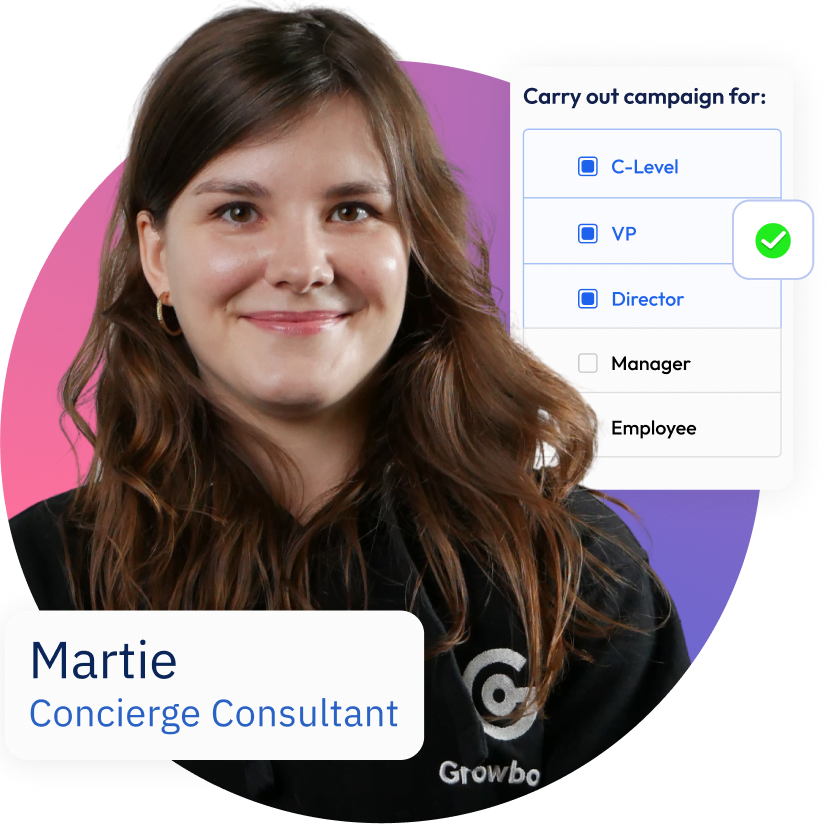Salespeople today are in a tough spot. Most customers won’t reach out to companies until they’re most of the way through the buying process.
With the Internet thrown into the mix, customers often know more about your products and your competitors than you know about them.
Fortunately, the secret to winning over customers is free and anyone can learn it. It’s effective sales questions. In fact, in a study of over 500,000 discovery calls, there’s a clear correlation between the number of questions a sales rep asks and her chances of closing the sale.
Buyers today are savvy. They can smell a pitch from a thousand yards away.
Focusing your time on creating an even dialogue led with effective sales questions will set you up to nail your pitch when the time is right.
Unfortunately, asking the right questions isn’t always as intuitive as it seems like it should be. If you’ve ever had a lead straight up refuse to answer your questions, only respond with one-word answers, or hedge their responses, it’s not because you have a difficult lead on your hands. It’s because you haven’t (yet) mastered the art of effective sales questions.
Learning the right way to ask questions can make or break your monthly quota.
After all, the more you know about your customers, the better you can tailor your pitch to speak to them, the better you can meet their needs and wants, and the easier it will be for them to say yes.
The 7 Tips You Need to Ask Effective Sales Questions
1. Start with questions that build rapport.
Think of the questions you’re going to ask like the levels of a video game. You don’t want to start by facing the boss at the end of the game first just like you don’t want to dive into sensitive financial questions right after saying hello.
Start your questions at Level 1 difficulty and work up from there. Starting out slow with non-threatening questions gives you a chance to build rapport and trust between you and your lead. After all, you’re not here to make a sale (yet).
You’re here to learn about your lead so lean into that.
Sample Questions:
- “Tell me a little about your business.”
- “How long have you worked here?”
- “What would you love to see change in the next year/three years?
2. Avoid close-ended questions.
Close-ended questions are great when you need hard information like if they’re available for a call at 3:00.
But when you’re in the discovery process and want to elicit as much information as you can, open-ended questions encourage expansive answers.
Instead of, “Do you have problems within your organization you want to solve?” Try, “What problems within your organization are your biggest priority right now?”
3. Start broad and then drill down.
When posing effective sales questions, you want to guide the conversation based on your lead’s responses. To do that, start with general questions and then continue to move into more granular details.
If you jump into the deep end and begin discussing details, you might push the conversation in a direction it otherwise wouldn’t go. Which means that you might be missing your lead’s true needs.
Sample Questions:
- “What are your long-term goals? What are your short-term goals?”
- “Who do you work with now? What do you like or not like about your current solution?”
- “What resource do you need more of?”
4. Only ask one question at a time.
When we get excited, it can be really easy to start peppering questions before the other person has a chance to respond. Effective sales questions are offered one at a time because otherwise, you’re giving your lead an out.
Oftentimes in conversation, we’ll only answer the last question posed or we’ll answer what we’re most comfortable with.
When you ask one question at a time, you will not overwhelm your lead, but also ensure you don’t miss an opportunity to hear an answer to a tough question.
Instead of, “What do you like about your current solution? Why are you considering leaving? What could we do to earn your business?” Try asking, “What is your current solution?” and then sitting back and seeing where it goes.
5. Don’t try to mind read.
Jumping to conclusions is so easy often we don’t even realize we’re doing it. It’s important to keep an eye out for this though. Sometimes your idea of something isn’t the same as something else’s.
If your lead says something ambiguous, it’s okay to follow up and ask them to elaborate.
For example, you ask, “What’s the most important thing for your next software solution?” Your lead responds, “It needs to be easy to use.” This is the perfect time to ask for clarification. By ‘ease of use’, is she thinking easy to install and roll out a clean user interface, or something else?
Sample Questions:
- “Can you tell me more?”
- “Why is that?”
- “What do you think?”
6. Don’t be in a rush.
The bottom line is that asking effective sales questions takes time. Sometimes you might end up sitting in silence while your lead composes her thoughts. That’s okay. You don’t want to be watching the clock or trying to hurry responses.
Schedule your meetings and phone calls so that you have the space to make the conversation leisurely and comfortable.
In the same vein, effective sales questions will feel genuine and composed in the moment. You don’t want it to sound like you are reading off a list of questions (even if you are!).
Rapid-fire questions can easily begin to feel like an interrogation and make your lead feel like the answers aren’t important. Taking time to respond thoughtfully and letting the conversation have a little breathing room will help to prevent this.
7. Don’t front load questions.
Interactions with a lead should be an even back-and-forth. Even though salespeople have a rep for being smooth talkers, the most effective salespeople listen as much as they speak.
In fact, the study referenced above also found that the best sales reps pepper their questions throughout the conversation. The trick is to make the interaction feel like a natural conversation and not an interview.
Sales have certainly changed in the last few decades. Buyers today are more complex and more educated than ever before.
They can often come to a salesperson with a conflicting list of wants, but effective sales questions can help you determine the true needs and how to meet them.
What is your tip for asking effective sales questions? Let us know in the comments.





















